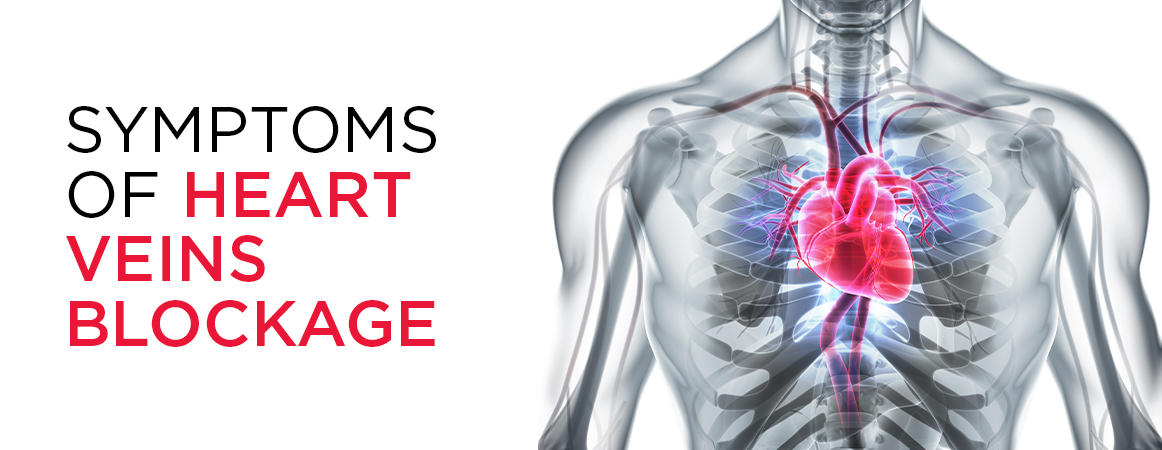Symptoms of Heart Veins Blockage
The heart is a crucial organ that circulates blood throughout the body. When the veins that carry blood to the heart become blocked, it can lead to serious health problems. This blockage is known as coronary artery disease (CAD). CAD is the leading cause of death worldwide, and it is important to be aware of the symptoms so that you can seek treatment if needed.
What Causes Heart Vein Blockage?
Several factors can increase your risk of developing CAD. These include:
- High blood pressure
- High cholesterol levels
- Diabetes
- Smoking
- Lack of physical activity
- Poor diet
- Age
- Family history of CAD
Symptoms of Heart Vein Blockage
There are a few different symptoms that can indicate that you have a blockage in your heart veins. Such as:
Chest Pain or Discomfort
This is often the most common symptom of CAD. The pain or discomfort can feel like a tightness or pressure in the chest, and it may radiate to the arms, neck, or jaw. It can be triggered by physical activity or emotional stress, and it may come and go.
Shortness of Breath
If you have a blockage in your heart veins, you may experience shortness of breath, especially during physical activity. This is because the blockage is preventing enough oxygen-rich blood from reaching the heart and other parts of the body.
Fatigue
A blockage in the heart’s veins can make it difficult for the heart to pump blood effectively, which can lead to fatigue and a lack of energy.
Palpitations
If you feel your heart racing or skipping a beat, it could be a sign of a heart vein blockage.
Swelling in the legs and ankles
If the blockage is preventing blood from flowing properly through the veins, it can lead to swelling in the legs and ankles.
Cold sweat
Some people with CAD may experience a cold sweat, especially during episodes of chest pain.
Nausea
A blockage in the heart veins can cause nausea and vomiting.
If you encounter any of these signs or symptoms, it’s critical to get medical attention as soon as you can. These symptoms may be indicative of a more serious condition, such as a heart attack. MMI is one of the best medical care cardiac center in Karachi.
Book an appointment with the top cardiologist in Karachi at the Memon Medical Institute Hospital.
Diagnosing Heart Vein Blockage
If your doctor suspects that you have a blockage in your heart veins, they will order some tests to confirm the diagnosis. A few possible tests are listed below:
Electrocardiogram (ECG)
This test measures the electrical activity of the heart and can help to identify any abnormalities.
Blood Tests
Blood tests can help to determine if you have any underlying conditions, such as high cholesterol or diabetes, that may be contributing to the blockage.
Stress test
During a stress test, you will be asked to exercise on a treadmill or stationary bike while your heart is monitored. This test can help to identify any areas of the heart that are not getting enough blood.
Coronary Angiography
In this procedure, a dye is injected into the heart’s blood vessels, and X-rays are then taken to check for any blockages.
Treating Heart Vein Blockage
There are several treatment options available for people with coronary artery disease (CAD), which is a condition characterized by a blockage in the veins that carry blood to the heart. The specific treatment plan will depend on the severity of the blockage and any underlying conditions. In some cases, the following types of treatment are suggested:
Medications
Several medications can help improve blood flow to the heart and reduce the risk of further blockages. These include aspirin to prevent blood clots, beta blockers to lower blood pressure, and statins to lower cholesterol levels.
Lifestyle Changes
Making lifestyle changes, such as quitting smoking, exercising regularly, and eating a healthy diet, can help to improve blood flow to the heart and reduce the risk of further blockages. If you are worried your child is at risk, consult a paeds cardiologist in Karachi at MMI.
Coronary Artery Bypass Surgery
This procedure involves using a healthy blood vessel from another part of the body to bypass the blockage in the heart vein. It is typically used for more severe blockages that cannot be treated with medications or lifestyle changes alone.
Angioplasty
This procedure involves inserting a balloon-tipped catheter into the blocked artery and inflating the balloon to widen the artery and improve blood flow. To maintain the artery open, a stent could also be inserted.
Atherectomy
This procedure involves using a catheter equipped with a laser or a rotational blade to remove plaque from the blocked artery.
It is important to work closely with your healthcare team to determine the best treatment plan for your need. In some cases, a combination of treatments is advised. Memon Medical Institute is the best medical, cardiac and general hospital location in Karachi. Seeking treatment early can help reduce the risk of serious complications, such as a heart attack.


